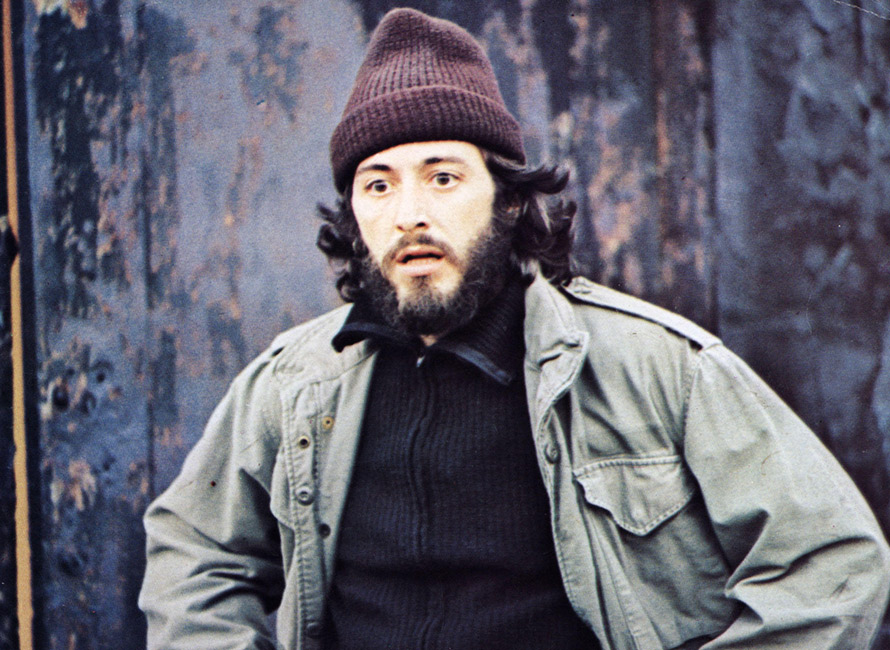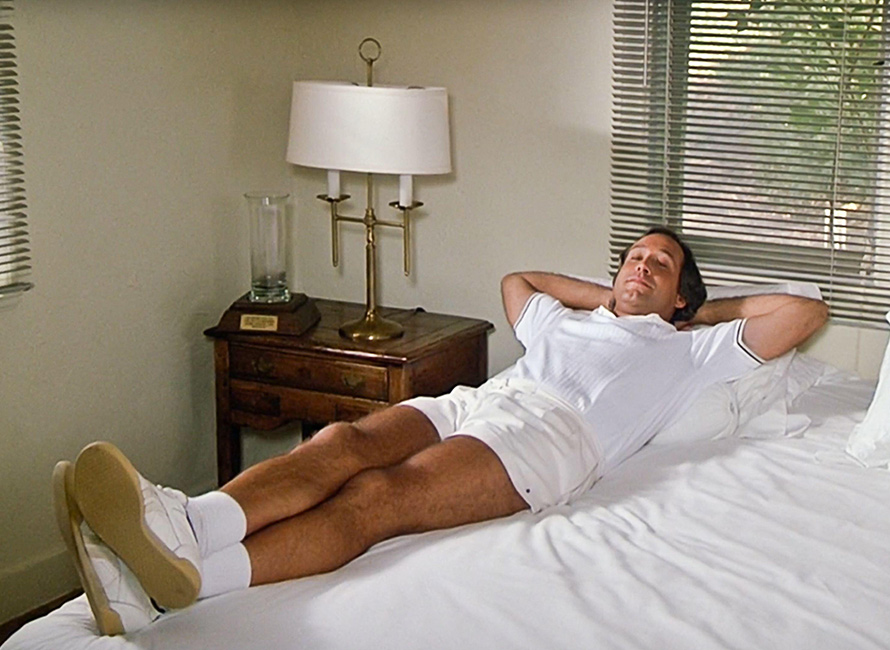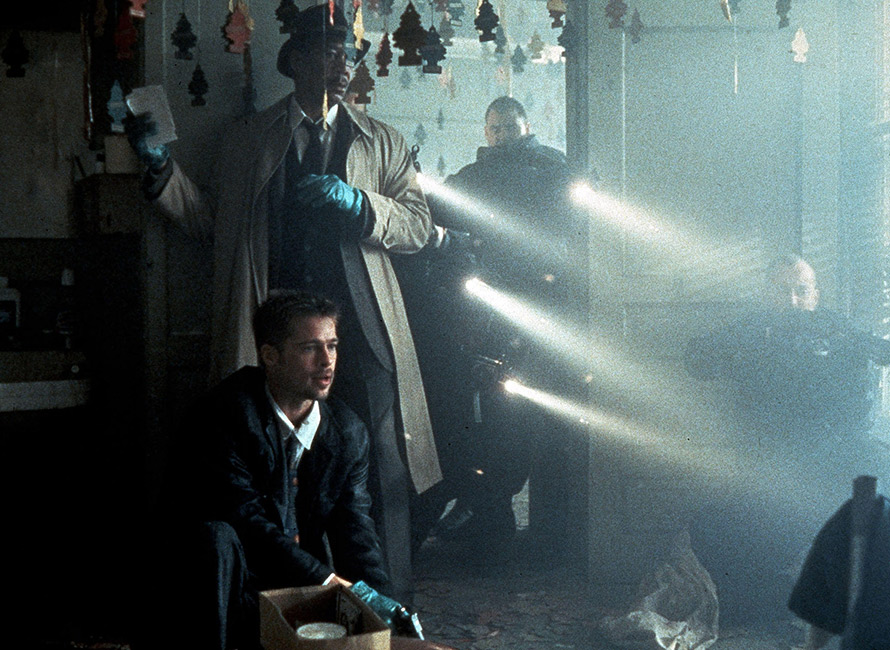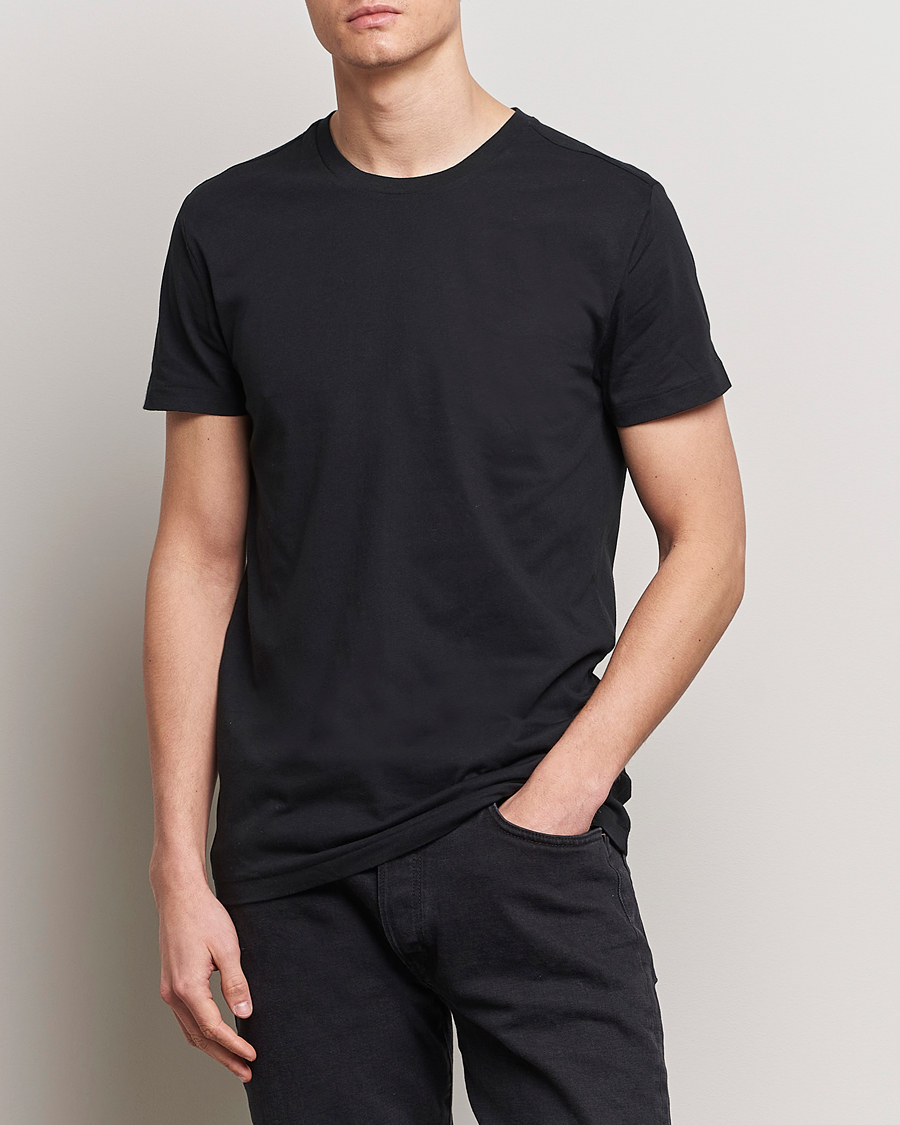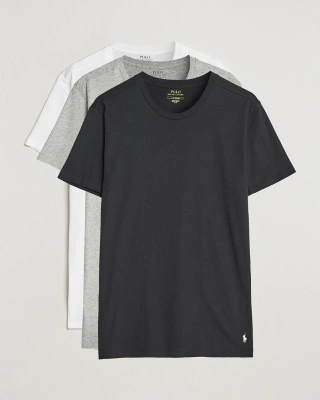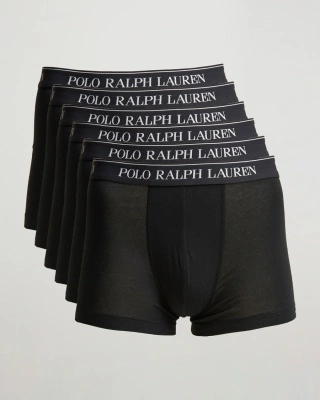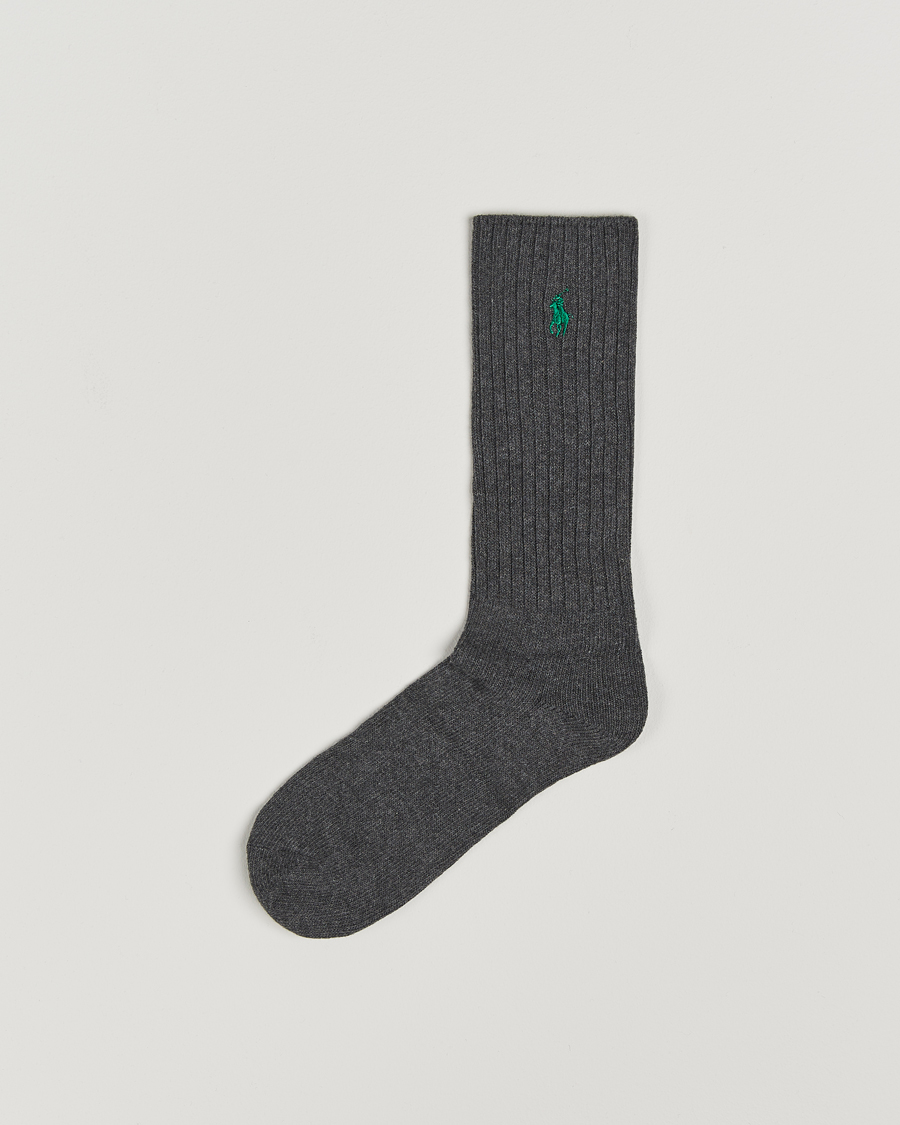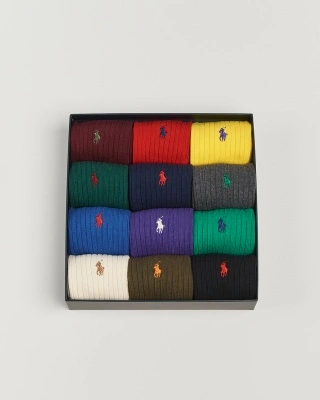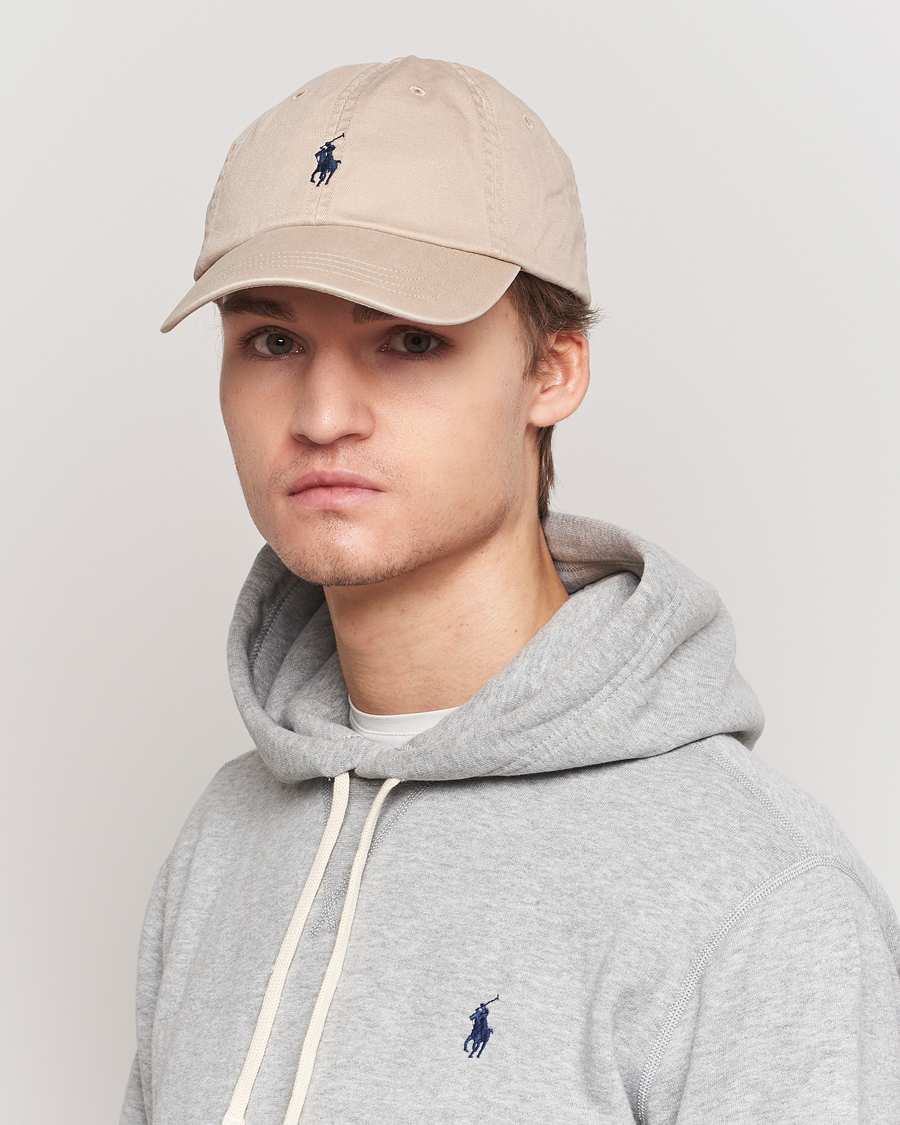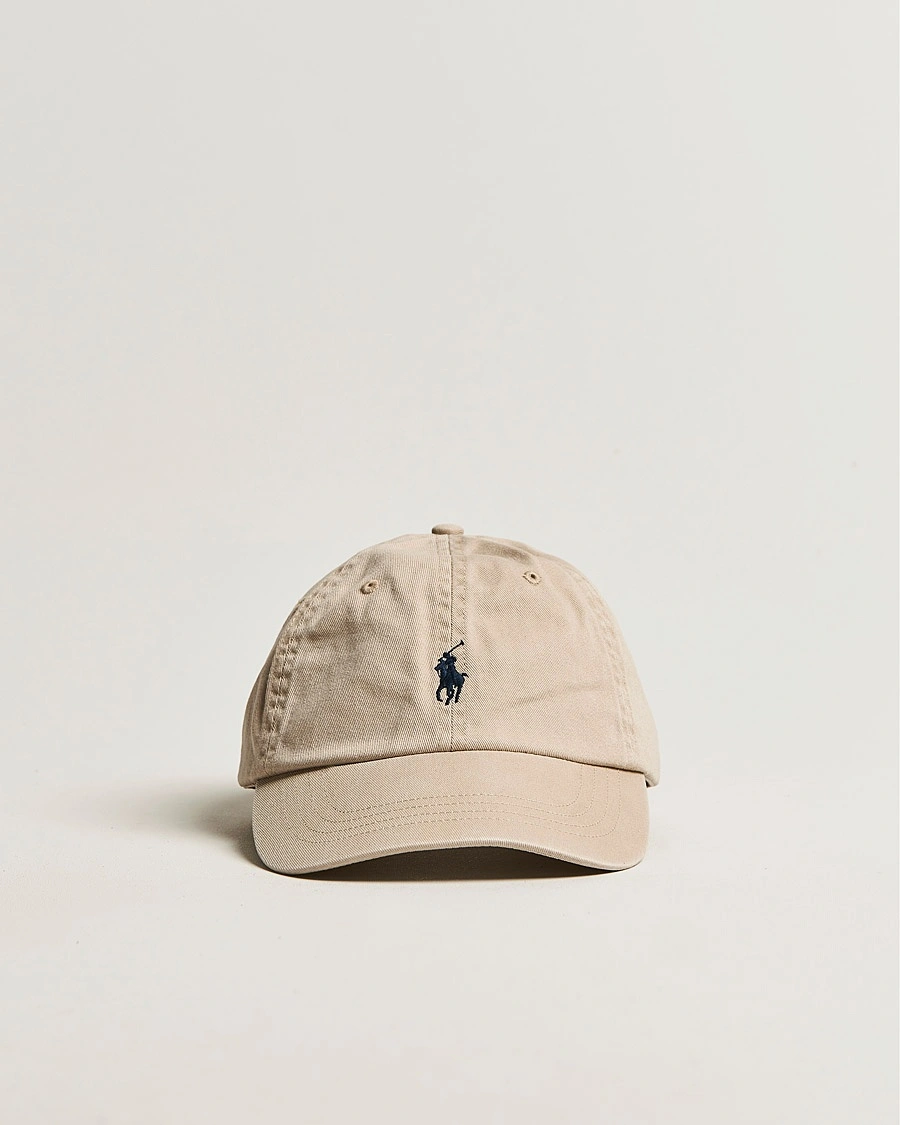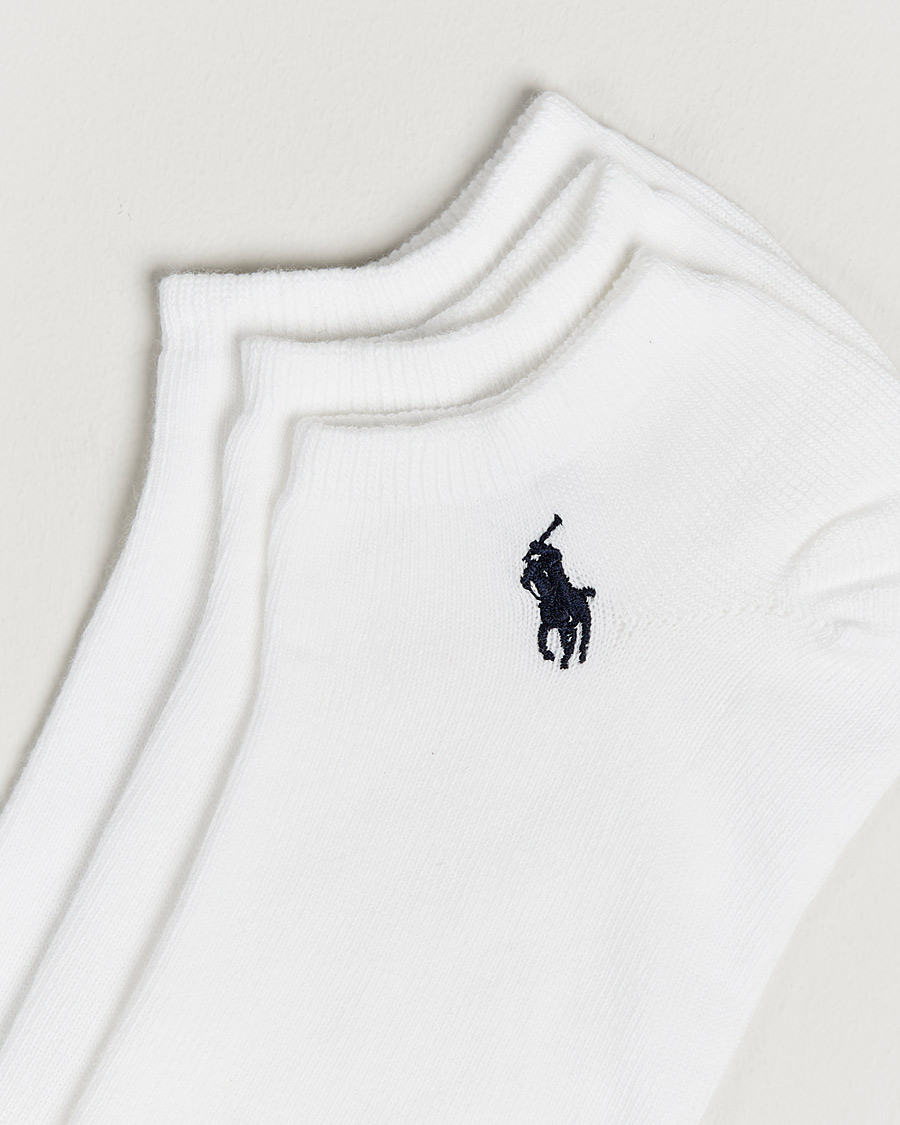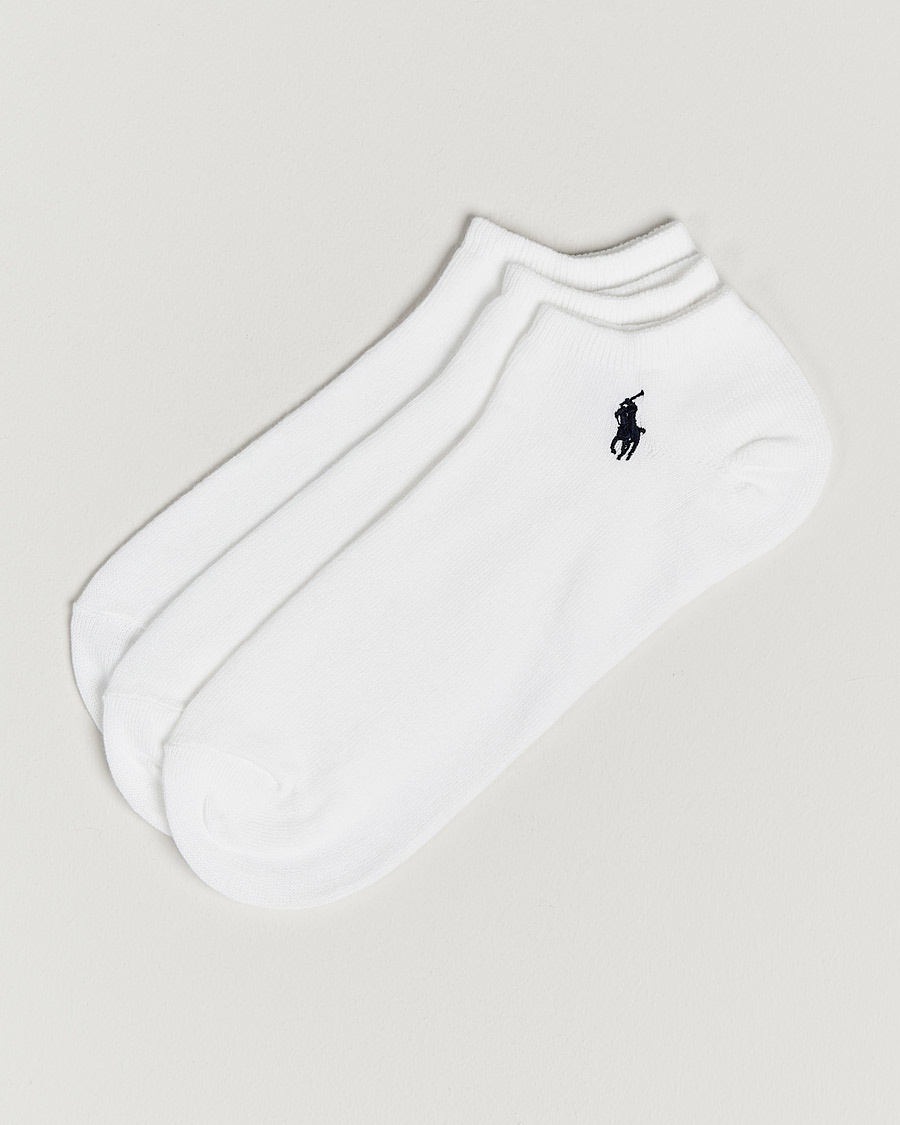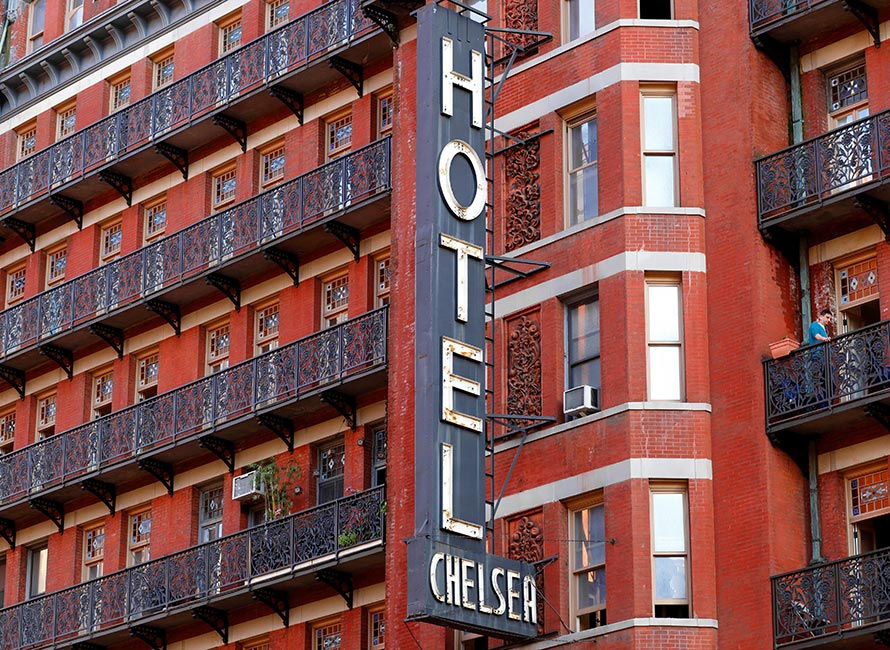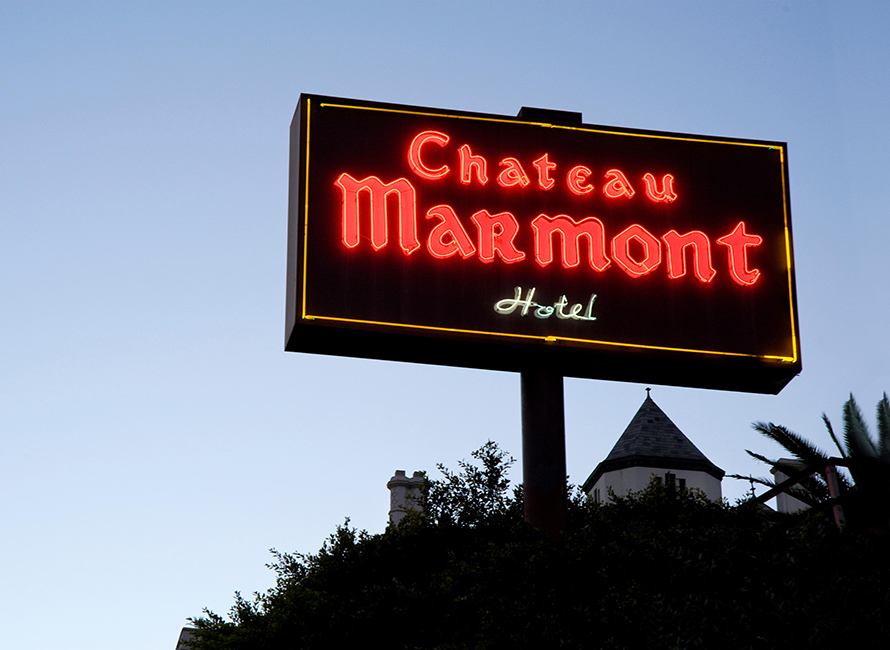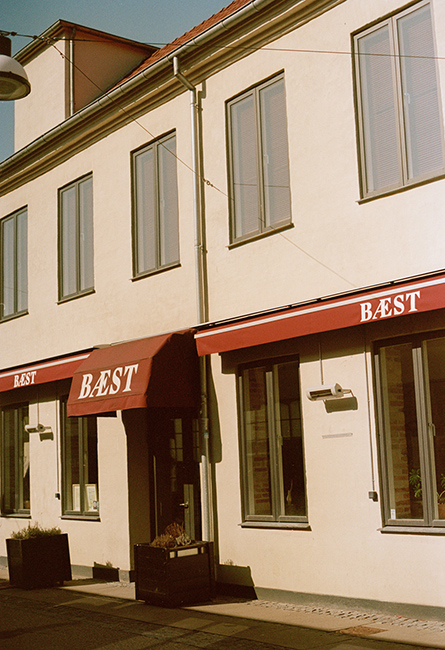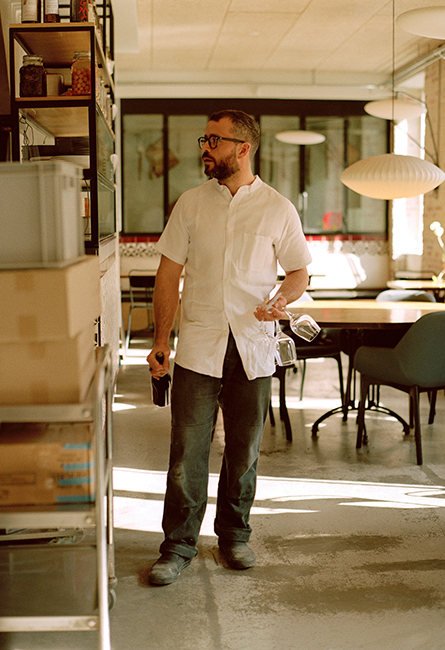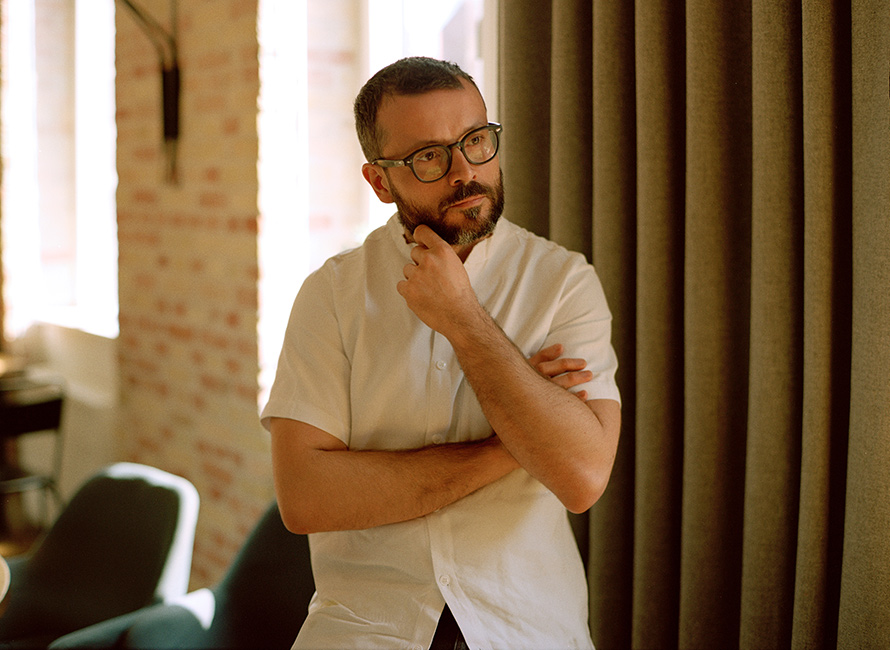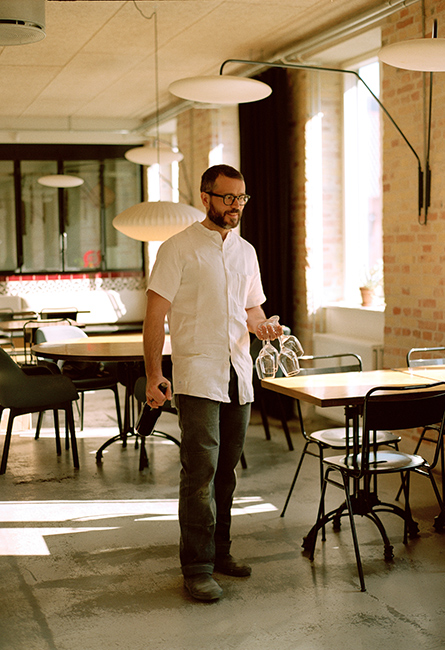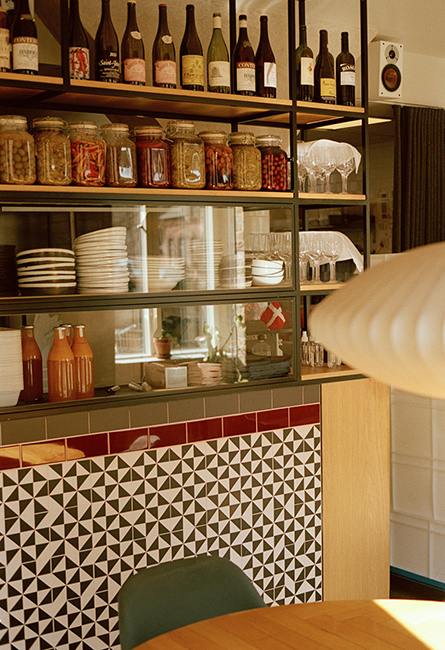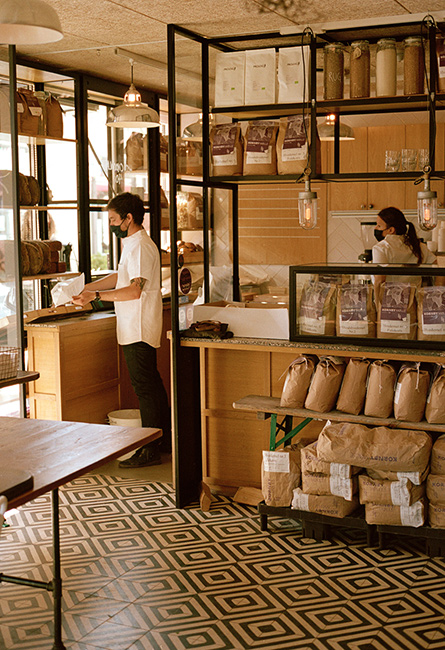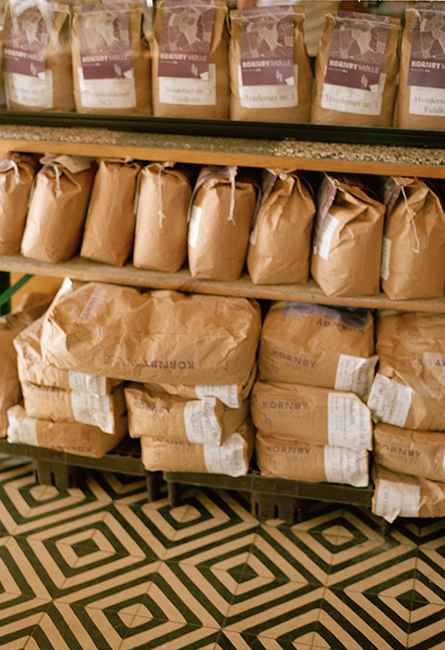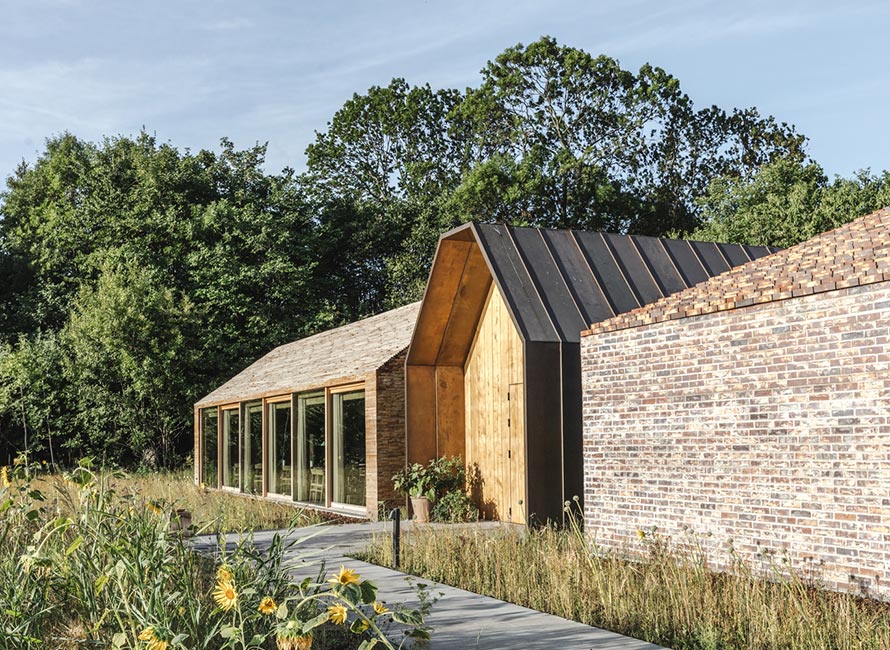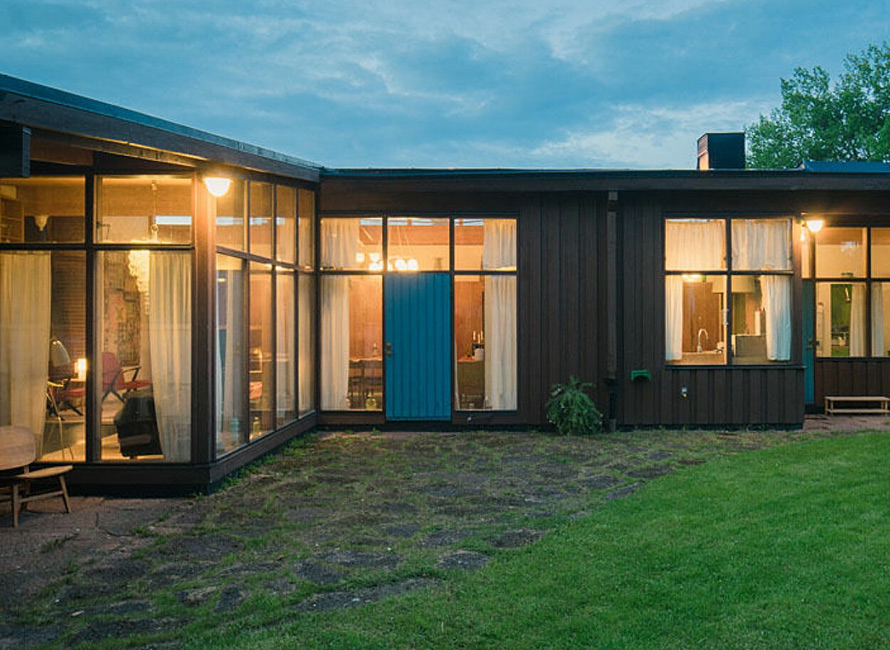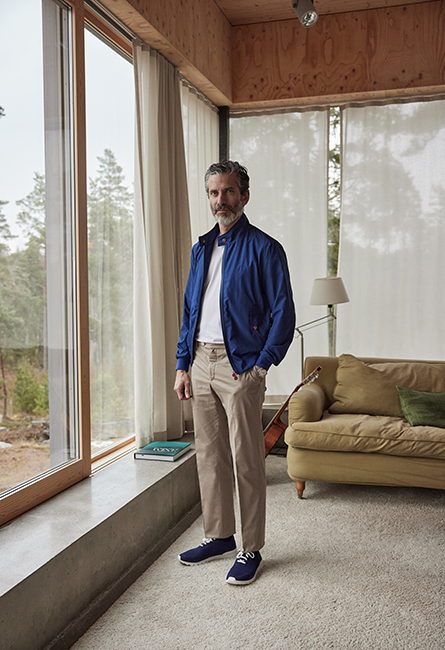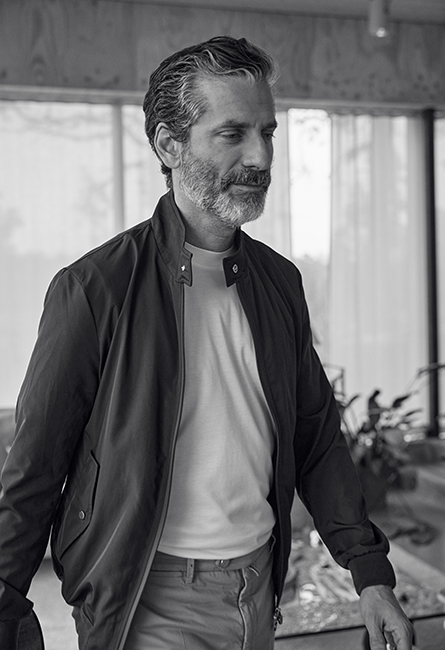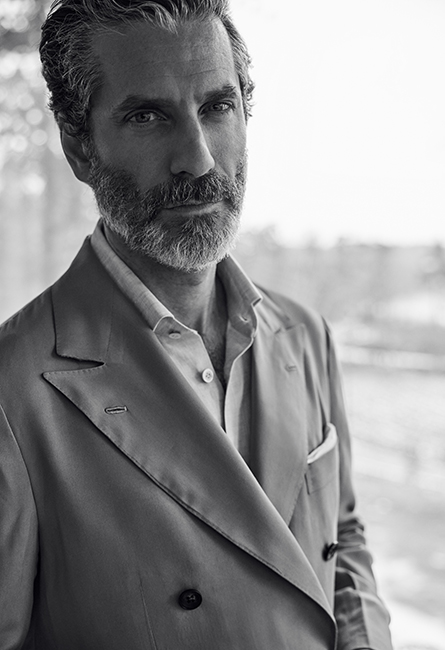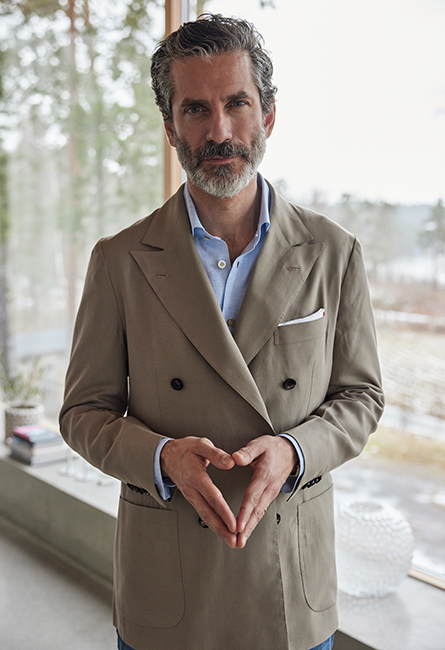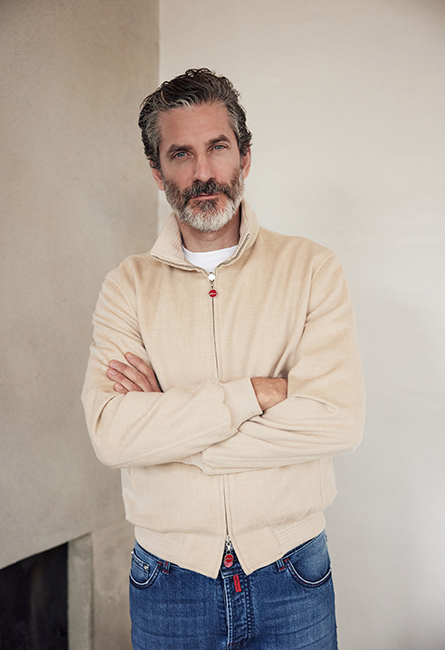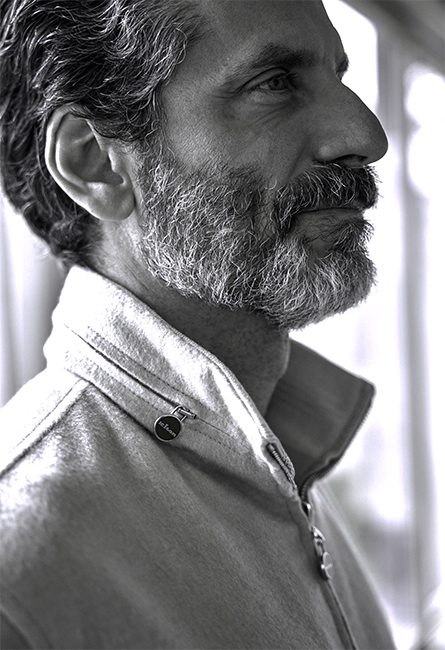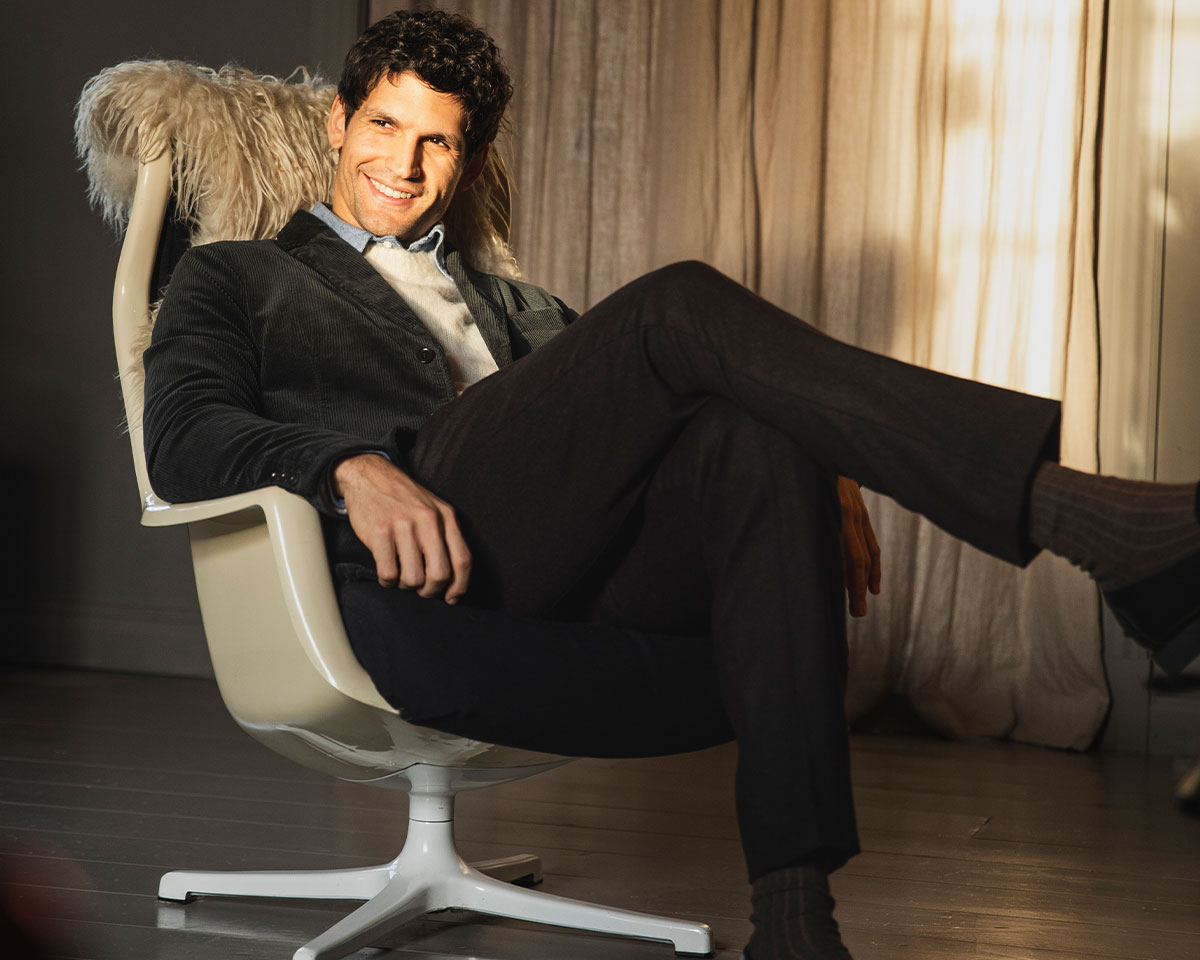It's a foggy Wednesday morning, we drive along Värmdös’ narrow roads on the way to Jens Lapidus’ summer residence. We were informed the day before that having a four-wheel drive might be needed for the last part of the road, which shouldn’t be an issue for the Volvo XC90 we’ve rented for the occasion, which we have filled with garments from Kiton that Jens is due to wear during the photo shoot. Outside the car window, red cabins and an old estate pass by as deer graze in the fields. We turn off the road and we begin to close in on a modern wood and concrete house with large windows that look out over the water and tall pines. The perfect place to write books, we imagine. When we’ve climbed the steep hill and parked the car, Jens greets us at the door. “Did you manage alright?” he asks with a smile as he welcomes us inside. We hang up our jackets and receive a tour of the house, which we are told was designed by the award-winning architect office Arrhov Frick.
Jens is doing well. Since the release of his debut novel Easy Money in 2006, he has written six novels, some short story collections, a graphic novel and a special edition. In 2017, Jens chose to leave his career as a lawyer, to work full-time with writing and hung therefore up his suits for good. He now wears mainly comfortable clothes, he says, but emphasizes that craftsmanship and quality still permeate his wardrobe. We take a seat in the lounge where the speakers are playing A36, the rapper. “Listening to music is a way for me to do research and find new words to use in my books” he says and continues “but I also think that the music is great.” The conversation continues, accompanied by more music, camera flashes and a crackling fireplace.
[SLIDER2 START]
[ARTNR='22391811'r]
[ARTNR='22394911r']
[ARTNR='22392611r']
[ARTNR='22395311r']
[SLIDER2 STOPP]
You began your writing career whilst you worked full-time as a senior lawyer. How did you manage?
- When I wrote Easy Money, I worked as a barrister in a court, and when I wrote Never Screw Up and the other books, I was working as a lawyer. I also worked at Mannheimer Swartling, and continued on to working exclusively with criminal cases. When you work within law, you’re selling your time, and being a lawyer requires a lot of it. You have to be available for the client. I’ve even had to attend hearings on Christmas Eve and once I had to cut my holiday short to help a client. But, to answer the question, writing for me is a way of recuperating. Work took a lot of my energy, since I always had to be one hundred percent focused intellectually, emotionally, and socially. Becoming an author became a refuge for me, even if it meant many late evenings and nights.
Now you have published several novels, many which have become films and TV-series. Is it still as fun to write?
- Both yes and no is what I’d say. Easy Money was pleasurable to write. I had no children back then and I worked in court, where a whole new world appeared in which, I had never had any insight into before. It was also very therapeutic to write as I had to deal with the many horrible things I heard work. At that time I didn’t know that Easy Money would be published, or even that it would become a book. I just spent my evenings writing about what I had heard in court, so absolutely, that feeling is difficult to recreate. However, there has always been something about writing that, in addition to my job as a lawyer, has given me something more.
In 2017 you left the legal profession to focus fully on writing. Has having more time made it easier or more difficult to write?
- To leave my profession as a lawyer was a difficult decision that I prolonged for a while. When it comes to family, I may not have been present enough when I was both writing books and working full time as a lawyer. The truth is that writing becomes just like any other job in the end. It wasn’t just the case of opening the computer anymore, it now meant going research trips, PR for each book, book tours and so on. It became more difficult for me to write books when I left the legal profession. We moved at some point to Mallorca, and there I was, with all the time in the world to write a good book. I didn’t work as a lawyer anymore, all my non-profit commitments had been shelved, no lectures. I had the world’s most free life, and I should have been able to write two novels per year, but it took me four years to write Paradise City. Now, however, I think I have landed in the role of full-time writer. Many thanks to the fact that we have moved back home to Stockholm again, I think.
[SLIDER2 START]
[ARTNR='22392011'r]
[ARTNR='22394511r']
[ARTNR='22393011r']
[ARTNR='22395411r']
[SLIDER2 STOPP]
Since 2006, when Easy Money was published, gang violence in Sweden has escalated and become more serious. How do you view the increase of criminal gang activities during recent years?
- The solution to the problems that we see today is the million-dollar question on everyone’s mind right now. When I wrote Easy Money I could barely have any firearms in the book because they didn’t exist to the same extent in society back then. It will take a lot of different efforts to tackle the spiraling issues. Partly through tougher legislation, which we are beginning to see now, partly more police, but also deeper social efforts which I think most people are beginning to realize. Investments are needed in schools and we must also try to stop segregation and increase integration. Unfortunately, there are no easy solutions to this issue.
“I had to escalate the violence even more because I wanted the book to portray a dystopia and not reality”
How realistic is it that the dystopian scenario in your latest book: Paradise City, where walls are built around so-called “vulnerable areas” to protect the rest of the population, might become a reality?
- Just as you said, Paradise City takes place in a dystopian world, acting as a kind of warning light regarding what might happen if things go wrong. This isn’t a prediction, but a worst-case scenario. With that said, it was great fun to write, because I got the chance to think freely in a way I had not done before. I got the opportunity to describe could happen if society failed. Since it took a while to write this book, the real world became a lot worse than it was when I started writing, especially when it comes to shootings and bombings. I had to escalate the violence even more because I wanted the book to portray a dystopia and not reality.
From one subject to another. How would you describe your relationship with clothes?
- A large part is interest, but there is also a part that is based on expectations. I feel that if you work as a lawyer, you should also dress like a lawyer. A courtroom is no place to express one’s personal identity. In other countries, for example, you have specific garments that you only wear in the courtroom, but we aren’t that extreme in Sweden. When I put on the suit to go to work, I went into the role of a lawyer. You leave your personal opinions and feelings at home and take on a professional role. However, I think that journalists who interviewed me when Easy Money was released, expected to meet a writer, but since most of the interviews were done during lunchtime, I always showed up in a dark suit with a Hermès tie, which were my work clothes and maybe not typical attire for a writer.
“I can happily wear an overshirt, t-shirt and woollen drawstring trousers.”
Has your style changed since you became a full-time author?
- I actually sold almost all of my ties recently, so that might answer the question. Clearly, my style has changed. I very rarely wear a suit and tie anymore. From having a suit every day in the courtroom to sitting on Mallorca wearing a well-worn t-shirt, shorts and espadrilles. I probably only wore a blazer on two occasions down there, one of which was a 40th anniversary party. Since then, Covid-19, with quarantine and working from home, has also contributed to a softer style. I like to walk around in, for example, an overshirt, t-shirt and woolen drawstring trousers.
Snabba Cash has become a successful TV-series on Netflix. What is it like to have your own TV- series on one of the world's largest streaming services?
- Snabba Cash has almost become somewhat of a franchise. The TV-series doesn’t have a whole lot to do with the books, but the theme is the same. It is about two completely different worlds that are woven together. We decided quite early on that the series would not be about a character trying to become part of the upper class, like in the first book. We decided to portray the start-up scene Sweden and the underworld, which felt more relevant. Of course, it feels huge and also pleasing that it turned out so well. Lead screenwriter Oskar Söderlund and director Jesper Ganslandt also did a fantastic job in co-creation.
[SLIDER2 START]
[ARTNR='22391211r']
[ARTNR='22394311r']
[ARTNR='22393011r']
[ARTNR='22395611r']
[SLIDER2 STOPP]
What can we look forward to in the second season?
- I’m not really allowed to say that much, but from what I have seen so far, it looks great. Of course, I’ve read the script, and believe that the audience will like season two even more than season one. I haven’t been as involved in season two, but I think it will be even darker than the first. What I did notice, I must say, is that everyone involved, from the screenwriter Oskar Söderlund, the producer Nicklas Wikström Nicastro to all the actors and employees behind the camera, all believe that this is more than just a TV series. Snabba Cash is important and illustrates Sweden in a way that no one else has done before.
You also have your own production company, which produces content for film and television.
- This is something I have wanted to do for a long time, but I felt I needed a partner who had experience within the industry. After nagging at the previously mentioned Nicklas Wikström Nicastro for a while, he finally resigned from SF Studios to invest himself wholeheartedly in our production company called Strive Stories. Nicklas works more operationally, and I work with ideas and as a creator. We basically develop ideas for film and television.
Apart from Strive Stories and season two of Snabba Cash, what happens next?
- I will continue writing and am currently working on a book that will be published after summer. Unlike Paradise City, this book has been much easier to write. Unfortunately, I can’t say much more than that, other than that this is the fourth book in the Top Dog series. I am also on Swedish TV4 every Tuesday where I am allowed to take a step into the legal world again, since I participate as a legal expert and analyse various legal cases. Having several things going for me at the same time keeps me motivated, and having these types of interviews is fun as well.

